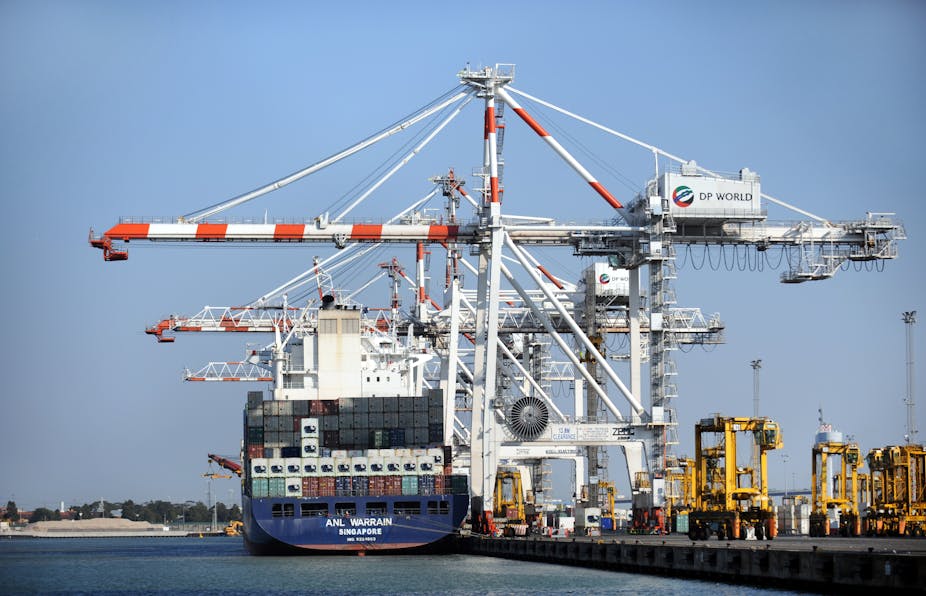There has been much debate in the popular and political discourse on the state of our national infrastructure.
The general consensus, despite Victoria’s Baillieu government’s failure to put forth any proposals for vetting by Infrastructure Australia, is not that there is a dearth of possible projects, but rather there is infrastructure of national importance either substantively depleted, or missing altogether.
The logic of investment in infrastructure is one of creating the conditions that lead to productivity, economic efficiency and growth.
The NBN was largely predicated on the need to prepare Australia for the realities of a digital economy and the changing landscape in a knowledge and information rich world.
Laying down the NBN is as much about opening up the possibility of future options in such a world as realising the immediate gains from the network itself.
So, with that project online, what are the obvious other arenas of infrastructure spend that will open up options and create conditions for economic and social prosperity?
Transport is the most obvious.
The ability to quickly move goods and resources across our vast rugged terrain is a cornerstone of efficient supply chains and the commensurate productivity that brings.
The possibility of very fast rail infrastructure is certainly one area worth exploring. If we look at our national boundaries, then the equivalent issue would be modernising our ports.
Investments that facilitate the rapid and efficient flow of goods and resources in and out of our ports are surely as important as the movement of these goods and resources within the country.
A second area that receives much attention in infrastructure project-land, is around the surety of supply and access to critical resources such as water and natural gas.
The investments in desalination plants and pipelines (for gas and water) in the recent past do not entirely mitigate the need for planning around the provision of energy and water supplies to our burgeoning cities.
But if our objective is to provide the foundations of economic and social prosperity through investment in the requisite infrastructure, then we should look beyond the obvious (and traditional) infrastructure projects to the realm of education and health as well.
The Gillard government’s Building the Education Revolution sadly amounted to little more than a failed attempt to provide technological resources to children in schools.
Surely a knowledge economy requires much greater investment in our education infrastructure. Public schools are depleted (and in some newer growth regions non-existent).
Failure to reinvest in these will have implications for the wider economic prosperity of the nation extending for a much longer time and with greater impact than our transport infrastructure.
The real options embedded in education investments are huge. Skills shortages in Australia, a consequence of our ageing demographic, will be amplified in years to come if we are unable to make the requisite investments in public education and the Vocational, Education and Training (VET) sector.
A similar story extends to our depleted health infrastructure. Investment in the health landscape, hospitals, mental health programs, and initiatives such as telemedicine for remote areas, are all critical to ensure we have a productive workforce and can create economic and social prosperity of the nation.
There are of course complicating factors between state and federal jurisdictions in allocating funds and deciding priorities across different realms.
But if we are asking what infrastructure projects are of national importance, then we must start by putting aside the political conflicts.
Moreover, the lens by which we have traditionally looked at infrastructure projects has been one of investment in physical facilities that provide the foundations for trade and commerce.
It’s time to broaden our focus to the infrastructure investments that are crucial to providing the quality and pipeline of human capital that necessarily underpins a flourishing nation in the knowledge economy.
There is no shortage of important infrastructure projects that need to be invested in to ensure the economic and social prosperity of future generations in Australia.
But to establish a ranking order on the merits of such investments and to prioritise the public spend, we need to be looking at the valuations through an optional lens in an uncertain world.
Transport, ports, education, health, resource security are all important foundations, but some have more lasting impacts on the prosperity of nations than others.
Should we be investing heavily in marginal improvements in supply chain efficiency that result from more efficient transport logistics (and systems) - or underpinning the very fabric of our knowledge economy through investing in a genuine education revolution?
As an economist I know where I would be putting my dollars.

